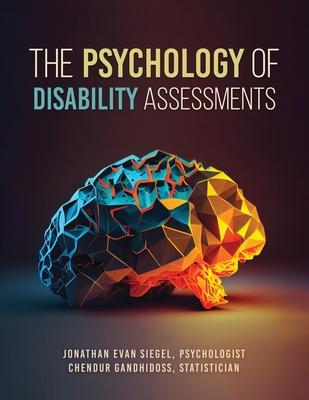The book is a compilation of articles written by Jonathan Evan Siegel, Psychologist and Chendur Gandhidoss, Statistician, as well as in collaboration with others over the past 15 years. The majority of the articles have been previously published in a trade journal (Without Prejudice) for Ontario (Canada) Insurance Adjustors. The articles address broad principles and ideas related to conducting psychological assessments, such as the role that psychosocial factors play in the maintenance, intensification, and perpetuation of attitudinal and behavioural impairments. There are also articles related to the psychometrics of psychological testing, including validity testing. The reason for the articles on the statistics of psychological testing is to highlight both the strengths and limitations of psychological testing and the importance of identifying confidence intervals. The collection of articles comprising the book is not a how to' for conducting psychological assessments nor is it a comprehensive review of the research in the field. The book is meant, rather, to be a quick resource for practitioners in the field who want to review some of the fundamental issues related to the field of conducting psychological disability assessments.

The Psychology of Disability Assessments
The book is a compilation of articles written by Jonathan Evan Siegel, Psychologist and Chendur Gandhidoss, Statistician, as well as in collaboration with others over the past 15 years. The majority of the articles have been previously published in a trade journal (Without Prejudice) for Ontario (Canada) Insurance Adjustors. The articles address broad principles and ideas related to conducting psychological assessments, such as the role that psychosocial factors play in the maintenance, intensification, and perpetuation of attitudinal and behavioural impairments. There are also articles related to the psychometrics of psychological testing, including validity testing. The reason for the articles on the statistics of psychological testing is to highlight both the strengths and limitations of psychological testing and the importance of identifying confidence intervals. The collection of articles comprising the book is not a how to' for conducting psychological assessments nor is it a comprehensive review of the research in the field. The book is meant, rather, to be a quick resource for practitioners in the field who want to review some of the fundamental issues related to the field of conducting psychological disability assessments.